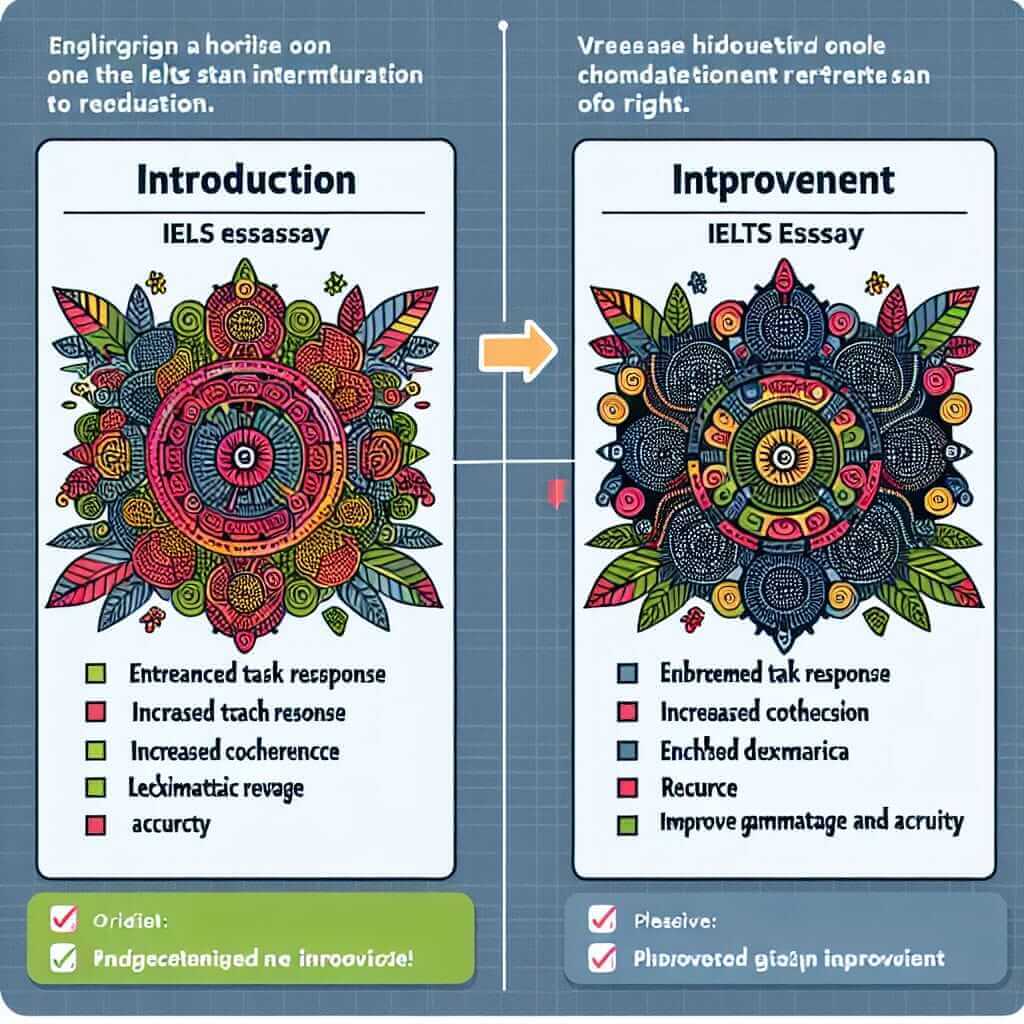As an IELTS instructor with over 20 years of experience, I’ve witnessed firsthand the struggles students face with IELTS Writing. Many spend countless hours practicing but see minimal improvement in their scores. Why? Because they haven’t mastered the art of self-correction. This guide delves into effective strategies to help you identify and rectify common writing errors, paving your way to a Band 7+ score.
Understanding the Importance of Self-Correction in IELTS Writing
Before diving into the how-to, let’s understand why self-correction is crucial. The IELTS Writing tasks assess your ability to:
- Present ideas coherently and cohesively.
- Use a wide range of vocabulary accurately.
- Demonstrate grammatical range and accuracy.
- Employ appropriate tone and style.
Self-correction trains you to become your own editor, enabling you to spot and fix errors in these areas before submitting your work. This significantly increases your chances of achieving a higher score.
Effective Strategies for Correcting Your IELTS Writing
1. Master the IELTS Writing Criteria
To correct effectively, you must understand what examiners look for. Familiarize yourself with the four assessment criteria:
- Task Response: How well you address the task requirements.
- Coherence and Cohesion: How well your ideas are organized and connected.
- Lexical Resource: Your vocabulary range and accuracy.
- Grammatical Range and Accuracy: Your grammar range and accuracy.
You can find detailed band descriptors for each criterion on the official IELTS website. Use these descriptors as a checklist when reviewing your writing.
2. Implement a Multi-Stage Editing Process
Don’t try to correct everything at once. Instead, focus on one area at a time:
-
Stage 1: Task Response and Coherence
- Have you fully addressed all parts of the task?
- Is your essay logically organized with clear paragraphs?
- Do you use appropriate linking words to connect your ideas?
-
Stage 2: Lexical Resource
- Have you used a wide range of vocabulary?
- Are your words chosen for their precision and appropriateness?
- Have you avoided repetition as much as possible?
-
Stage 3: Grammatical Range and Accuracy
- Have you used a variety of sentence structures?
- Are your verb tenses consistent and accurate?
- Have you checked for common grammatical errors (e.g., subject-verb agreement, articles)?
-
Stage 4: Proofreading
- Read your work aloud slowly to catch any remaining errors.
- Pay close attention to spelling and punctuation.
3. Utilize Resources and Tools
- Grammar and Spell Checkers: While helpful, don’t rely on them entirely. They often miss contextual errors.
- Online IELTS Writing Resources: Websites like IELTS.NET offer sample essays, writing tips, and feedback services.
- IELTS Practice Tests: Simulate exam conditions and analyze your performance.
Common IELTS Writing Errors and How to Fix Them
1. Task Response
- Problem: Providing irrelevant information or not fully addressing the task.
- Solution: Analyze the task carefully and plan your essay before writing. Ensure each paragraph directly supports your main arguments.
2. Coherence and Cohesion
- Problem: Lack of clear paragraphing or logical flow of ideas.
- Solution: Use topic sentences to introduce the main idea of each paragraph. Employ cohesive devices like transition words (e.g., furthermore, however, in conclusion) to connect ideas smoothly.
3. Lexical Resource
- Problem: Overusing simple vocabulary or using words incorrectly.
- Solution: Expand your vocabulary by reading widely and keeping a vocabulary notebook. Use a thesaurus to find synonyms, but ensure they fit the context.
4. Grammatical Range and Accuracy
- Problem: Frequent grammatical errors, such as incorrect verb tenses or articles.
- Solution: Review grammar rules regularly. Focus on areas where you tend to make mistakes. Consider taking a grammar course or working with a tutor.

Example: Correcting an IELTS Essay Introduction
Original:
Many people believe that technology has had a negative impact on society. However, others argue that technology has many benefits. In this essay, I will discuss both sides of this argument.
Corrected:
The rapid proliferation of technology in recent decades has sparked a debate about its overall impact on society. While some argue that it has detrimental consequences, others maintain that its advantages outweigh the drawbacks. This essay will explore both perspectives before presenting a reasoned conclusion.
Analysis of Changes:
- Task Response: The corrected version clearly states the essay’s purpose and addresses both sides of the argument.
- Coherence and Cohesion: The corrected version uses more sophisticated linking words (“While,” “others maintain”) to create smoother transitions.
- Lexical Resource: More advanced vocabulary is used (“proliferation,” “detrimental consequences,” “reasoned conclusion”)
- Grammatical Range and Accuracy: The corrected version uses a more complex sentence structure and avoids repetition.
Achieving IELTS Writing Success: Practice Makes Permanent
Remember, consistent effort is key. By understanding the IELTS criteria, implementing effective self-correction strategies, and learning from your mistakes, you’ll be well on your way to achieving your desired IELTS Writing score. Good luck!